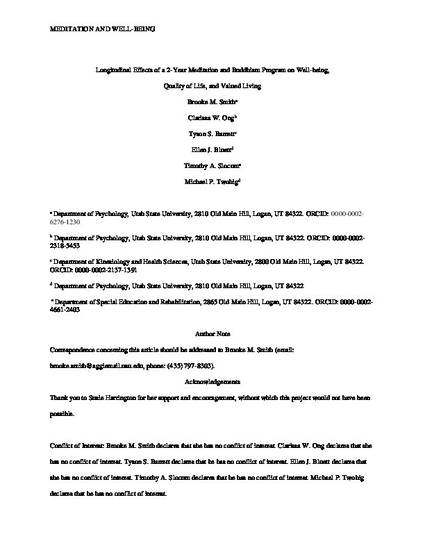
Objectives: Most research on mindfulness and meditation has focused on structured therapeutic interventions, such as mindfulness-based stress reduction, or meditation retreats. Such programs have received moderate empirical support for improving psychological outcomes in clinical and nonclinical populations, but there remains a paucity of research on intensive or long-term mindfulness or meditation programs for experienced practitioners, especially those that incorporate Buddhist teachings. The purpose of the current study was to investigate the effects of a long-term integrated mindfulness/meditation and Buddhism program, Dharma in Daily Life (DIDL).
Methods: Well-being, quality of life, valued living, and theorized processes of change were measured using a naturalistic, quasi-experimental design over the course of the 2-year program and 6-month follow-up. Participants included 17 individuals enrolled in the program and 14 individuals recruited from community meditation groups.
Results: Participation in the program predicted increases in subjective well-being and mindfulness over time compared to the control group. Regardless of condition, frequency of meditation predicted lower psychological inflexibility and higher mindfulness, well-being, and progress toward values. Length of meditation session predicted a greater ability to observe experience, and prior meditation experience predicted greater non-reactivity to experience.
Conclusions: Although preliminary, results suggest that participation in a long-term integrated mindfulness/meditation and Buddhism program may positively impact mindfulness and general well-being. Frequency of meditation sessions appears to be a particularly important variable. These findings warrant further investigation of such programs and practice parameters, as well as how each may affect key outcomes.
